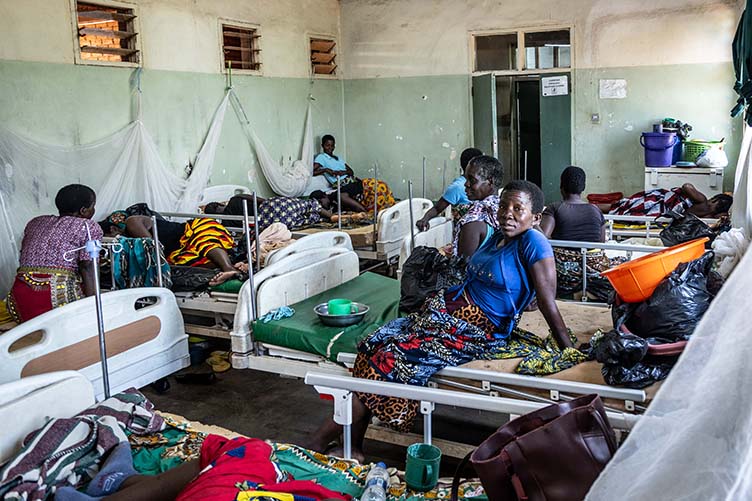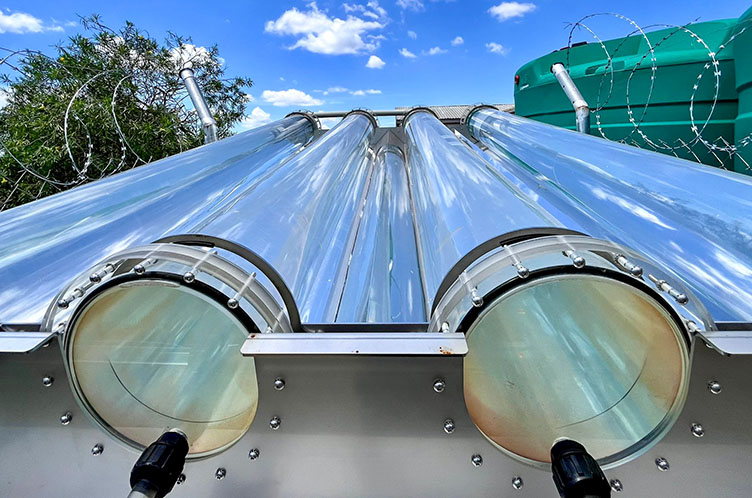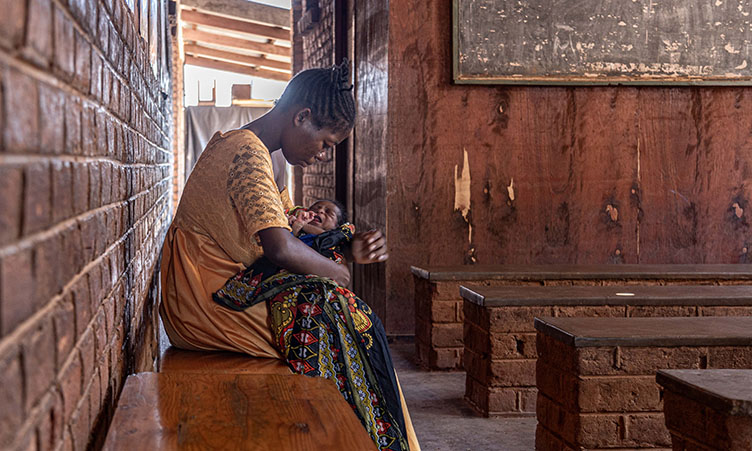The climate crisis makes reliable access to water unpredictable in many regions of the world. Over one million deaths yearly are associated with inadequate access to safe water during births. In resource-poor settings, basic interventions such as hand washing can lower the risk of neonatal deaths by 44%, but this is only possible if water is available. Here, project communications specialist Antonio Jaén Osuna shares his reflections on the importance and the impact of the SURG-Water project.
The SURG-Water team is developing a sustainable, low-energy solution to address the problem of inadequate access to water in rural healthcare facilities in Malawi, with a particular focus is on the needs of mothers and newborn babies as well as the clinicians providing maternal healthcare services.
More than 80% of Malawi's population lives in rural areas, very often without access to clean running water. These communities typically rely on natural water sources, wells and boreholes at best, for everyday activities such as cleaning their homes, washing clothes, and personal hygiene: a struggle that begins at birth.
Chimvu, a village near Blantyre, the economic capital of Malawi, has a modest health centre that has not had direct access to water for at least two years, not even in the maternity ward where an average of 45 children are born each month. The only way to access clean water is to send the guardians, those accompanying the expectant mothers, to collect water from the nearby borehole hand-pump. Sometimes, in the absence of family support, the pregnant women have to do this for themselves. This burden takes time and effort at a very vulnerable time in their lives.
The lack of running water presents other problems: high risk of infection for babies and mothers, and the difficulty of keeping up with cleaning duties on the ward for staff. Dependence on a borehole is unsustainable: the queues, the distance and, depending on the time of day, the danger for a woman to go to an isolated place to fetch water. The availability of local funding to improve access to water in places like Chimvu is very poor as the country struggles financially. For many years Malawi has been in the top 10 poorest countries in the world and the state of its healthcare system reflects this. What to do in such a situation?
Sustainable water treatment
A group of researchers from RCSI University of Medicine and Health Sciences (RCSI) and the Malawi University of Business and Science (MUBAS) have come together with an innovative idea in a project called SURG-Water. This project, funded by Science Foundation Ireland and the Department of Foreign Affairs, aims to introduce a sustainable method of water treatment that will enable women to give birth safely and staff to maintain hygiene standards in the maternity wards where they work.
To achieve this, and following an assessment of water use in maternal and neonatal care, SURG-Water has installed water treatment reactors capable of providing safe water at Chimvu Health Centre and Thekerani Rural Hospital. They use solar ultra-violet (UV) light disinfection technology (also known as SODIS) to treat harvested rainwater and provide a daily backup supply of 250 litres of clean water in a country with extreme weather conditions like Malawi.
“Normally, the water that comes from the rain is wasted,” says Christabel Kambala, a professor of public health at MUBAS and co-principal investigator of SURG-Water. “The idea is to capture that rain and use it as an additional water source once it has been treated with sunlight. We will get the water running in the health centres to alleviate the problem pregnant women face every time they need water before giving birth.”
SURG-Water has installed rainwater collection tanks with a capacity of 20,000 litres in two rural clinics. This water passes through a SODIS reactor, four transparent plastic tubes fitted with aluminium rear reflectors, where it remains in full sunlight for at least six hours. This is enough time to inactivate waterborne pathogens so that the water can be used in the maternity wards. The SODIS technology has been proven to work even on foggy or cloudy days. The only things SURG-Water needs are rainwater and sunlight.
Malawi has a subtropical climate that is relatively dry and highly seasonal. The rainy season lasts from November to April, when 95% of the annual rainfall occurs. However, these patterns are affected by climate change. For example, from October 2023 to March 2024, rising temperatures and a severe lack of rainfall have intensified and spread across the southern African region.
El Niño has brought to Malawi severe drought this year, with the driest February on record in the country, but rainfall has also been significantly reduced. This was a threat to SURG-Water because if there was not enough rainfall, how would the water storage tanks be filled? To the relief of the project team, even the sporadic showers this year have proven enough to fill the tanks and supply clean water.
Principal water source
Staff and community members have embraced the project with enthusiasm. The original idea was to provide the clinics with a certain amount of water to use as a backup, but in reality they now use it as their principal water source. The main benefit is that the SURG-Water reactors have been connected to sinks in the maternity wards, giving staff and patients immediate and convenient access to safe water. Now it is feasible for the personnel to clean instruments, mop floors, wash curtains and even wash their hands. This makes their work easier and quicker as water is available when it is needed and guardians are not asked to fetch water from the borehole any more.
According to the World Bank, changing climate conditions are worsening maternal and child health outcomes and intensifying health impacts from extreme weather events such as floods, droughts, wildfires and windstorms. The climate crisis is also rapidly deteriorating access to basic human needs such as food security, safe drinking water and sanitation, and clean air.
The result is that a warmer climate could lead to at least 21 million additional deaths by 2050. Projects such as SURG-Water, which uses solar light to treat rainwater with no running costs, could be a sustainable solution that will have a serious positive impact on the region, particularly in rural communities and especially for women who give birth in unsafe conditions. It could be a matter of time before the two clinics in southern Malawi become half a dozen across the country, and – who knows? – with time and funding, hundreds in the region.
The SURG-Water project is funded under the Science Foundation Ireland and Irish Aid Sustainable Development Goals (SDG) Challenge.
RCSI is committed to achieving a better and more sustainable future through the UN Sustainable Development Goals.
![]()
![]()




